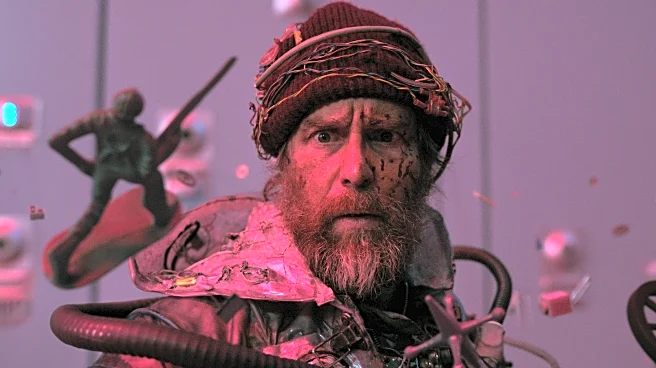What's Happening?
The remains of Staff Sergeant Itay Chen, an Israeli-American hostage, have been returned to Israel by Hamas. Chen was held by Palestinian militants in Shejaia, Gaza City, and his body was handed over following
a ceasefire agreement facilitated by the International Committee of the Red Cross. The ceasefire deal, effective since October 10, involved the exchange of hostages and detainees between Israel and Hamas. Hamas has returned 21 of the 28 bodies of hostages buried in Gaza, while Israel has handed over 270 bodies of Palestinians killed since the conflict began.
Why It's Important?
The return of Chen's remains is a significant step in the ongoing efforts to resolve the hostage crisis and address the humanitarian impact of the conflict. The exchange of bodies and hostages highlights the complex negotiations required to achieve peace and the role of international organizations in facilitating these processes. The situation underscores the broader geopolitical tensions in the region and the challenges faced in balancing security concerns with humanitarian needs.
What's Next?
The ceasefire agreement remains fragile, with ongoing incidents of violence threatening its stability. Continued diplomatic efforts are necessary to maintain the truce and prevent further escalation. The Israeli government may face pressure to ensure the safe return of remaining hostages and address the humanitarian needs of affected communities. International stakeholders may increase their involvement in monitoring and supporting peace efforts.
Beyond the Headlines
The ethical considerations of hostage exchanges and ceasefire agreements involve balancing security interests with humanitarian obligations. The long-term impact on regional stability and international relations may influence future diplomatic strategies and conflict resolution efforts. The role of international organizations in mediating and facilitating these processes is crucial in achieving sustainable peace.











